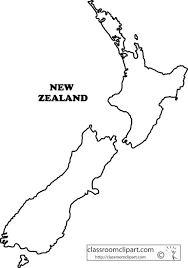New Zealand and the Big Bear
New Zealand and the Big Bear.
Yesterday my wife and I drove over to the Wairarapa from Plimmerton. It was Saturday afternoon and we were amazed at how much traffic there was on the road. It wasn’t even a nice day for travelling: the weather was lousy. I couldn’t help but think about all the global-warming CO2 that was being pumped into the air by the traffic, our car including. Not that a small country like NZ can be accused of being a major contributor to world global warming, but we do pride ourselves on doing our bit in international affairs.
A quick look on the NZ Stats dept. website, plus a couple of phone calls, indicated that our global warming contribution per person is not good, and is not improving. The two main contributors are agriculture at 48% of the total, and energy (mainly transport fuels) at 40.6%. If, as a country, we want to seriously reduce our contribution to getting a cage around the Big Bear, farming and transport will need to take bit hits.
The next morning the media were full of the damage an over-night storm, with in some cases record rainfall, had caused around the country. It’s not possible to seriously ascribe the cause of a single weather event to global warming, there have to be a number, showing a pattern. However, the pattern seems to be developing, and climate scientists keep telling us that a warmer atmosphere leads to more water being able to be stored, leading to heavier rainfall, incidences. So we can be fairly certain we’re going to see an increase in damage caused along with an increase in the cost of fixing infrastructure.
Farmers, especially dairy farmers, are coming under increased pressure to stop fouling water-ways, but a 48% contribution to global warming is another major issue that will need tackling. Individual farmers can’t be blamed as they operate within an economic system which calls for more growth; it has almost become a religious creed. However, from an environmental perspective there is no doubt that NZ agriculture is in ‘over-shoot’, and will get wound back somehow, sometime, unfortunately, as some see it, resulting in less overseas exchange being earned.
So where to from here? People will object to being told to use their cars and trucks less, and no-one wants to see a drop-off in overseas earnings.
There are ways, however to fix things. For example, NZ imports many thousands of tonnes of animal feed each year, to feed farm stock. The bill runs to tens of millions of dollars. If an increasing tax were imposed on these imports, farmers would be forced to stop growing their stock numbers (especially dairy cows) and return to farming based on grass and crops grown in New Zealand. ‘Over-shoot’ would begin to correct itself. (Anyway, when you think about it, we need overseas exchange only to pay for things we want to buy from overseas. Maybe we’re going to have to want less cheap stuff, and start producing things we really need, here in NZ).
An increasing tax on fossil transport fuels would, over time, discourage the use of road transport, reducing road maintenance costs and add to government’s income. The increased taxation could be used to pay for repairs to increasing global warming damage.
I’m not that naive to belief that these suggestions will be picked up by any NZ government in the near future. Voter back-lash would be too great, and voter back-lash is something all politicians steer well clear off. Having said that, it is becoming increasingly clear to people who allow themselves to see, that the big bear has to be caged, or the cost of its claw-gouges will become too much to put up with.


Leave a Reply